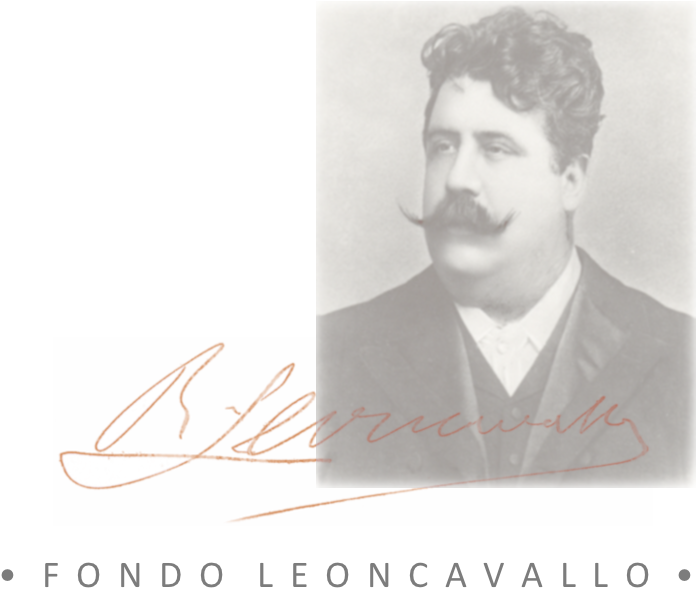Fondo Leoncavallo
Biography
Ruggero Leoncavallo was born in Naples on 23 April 1857 into a family of lawyers and scholars with an affinity for the arts. Due to the profession of his father, a prosecutor, he spent his childhood in Calabria. It was not until his return to Naples in 1868 that Leoncavallo began his musical studies at the city’s conservatory. In 1877 he stayed in Bologna, where he attended lectures by the poet and philologist Giosuè Carducci, but left the university without graduating. In 1879, an uncle who lived in Alexandria, Egypt, offered him the opportunity for a longer stay on the African coast, and it was only in 1882, when Leoncavallo finally decided to try his luck in Paris. But recognition as a musician was a long time coming; after six years he returned to Italy and settled in Milan.
The success of the younger Pietro Mascagni’s Cavalleria rusticana in 1890 prompted Leoncavallo to conceive a similar opera, combining brevity with dramaturgical density, and relatively easy to perform due to its manageable cast. Pagliacci, the “drama in two acts”, premiered on 21 May 1892 at the Teatro Dal Verme in Milan. The sudden artistic triumph made Leoncavallo world famous in a very short time. However, his following operas, Chatterton (1896) and La Bohème (1897), were not as successful as expected. Only Zazà (1900) gained a place in the repertoire, also abroad, and was performed for several decades. On the other hand, his numerous salon songs were in international demand, some of which were among the first great successes of the recording industry.
World fame enabled Leoncavallo to lead a rather upscale lifestyle. In 1905, he had himself built a splendid villa in Brissago, on the Swiss side of Lake Maggiore, where he had been living since 1897. Der Roland von Berlin (1904), an opera commissioned by the German Emperor Wilhelm II, brought him once more into the international limelight, as did an extensive tour of the United States of America and Canada (1906). However, broader artistic recognition now failed to materialise. Even with Maià (1910), Zingari (1912) and Mameli (1916), Leoncavallo was unable to repeat his earlier success, with consequences, finally, also of an economic nature. He still achieved some attention with the operettas Malbruk (1910) and La reginetta delle rose (1912). In 1916, however, he was forced to sell his villa and retired to Tuscany. Suffering from diabetes, Leoncavallo spent his last years in poor health. He died in Montecatini on 9 August 1919, aged 62.
Related Content Photographic impressions Leoncavallian iconography Exhibition Links

